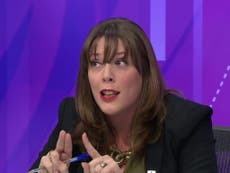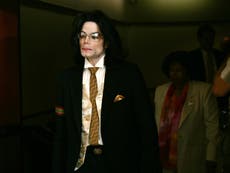As a headteacher, this is why we need to bring social media into the classroom and make it a force for good
Unrestricted access to a screen, much like a sugar addiction, can lead to an unhealthy obsession. But we must also prepare our children for a world where technology is king

Evolution. We accept it in nearly all areas of life. We evolve. We develop. And we’re shaped by these developments in ways that have a profound impact on the world around us. Why should this yearning for development be any different in education? We are in an information age, fueled and spread by the touch of our fingers.
Education has a huge opportunity: to evolve and usher in a new era of professional development for children today via social media.
Social media companies are rightfully being held to account for harmful content on their sites, which is an important and essential step. The slow but steady elimination of 1.3bn anonymous accounts on Facebook in the first half of 2018, for example, is a welcome development. But progress on this front is snail-like. Only now are we starting to see legislators turn their attention to tackle online abuse and its perpetrators head on.
Parents are understandably anxious about the effect social media is having on their children and the consequences brought about by irresponsible use and harmful content. As head of an all-girls school, I am shocked that in Europe alone, nine million girls have watched some kind of violence online by the time they are 15 years old. There’s no denying more needs to be done to protect children online. What’s more, unrestricted access to a screen, much like a sugar addiction, can lead to unhealthy obsessions. More than half of teens have self-identified having an obsession with social media.
That’s why we’ve developed a range of programmes for our girls from as young as seven to address the dangers of social media and turn them into something positive, even as a tool for professional development. From informing them of what being in a healthy relationship online looks like, to helping them understand the implications of their online footprint after they’ve posted, we are leading the charge to ensure the realities of social media match the values we want to see in our children.
But I am also encouraging social media use at Blackheath High School.
Focusing on the dangers makes us lose sight of what social media has to offer as a force for social good. Let us not forget that the origins of social media are rooted in a desire to bring people together, to interact, debate, and develop fresh connections.
We want to foster positive relationships between students and their use of social media by equipping girls with the skills they need to excel not only online, but in life. That skill set is something that goes beyond academia. We are working to ensure students have a healthy and positive relationship with social media by incorporating it into their academic world and professional futures.
When our children grow up they require significant internet literacy to be successful. Over 92 per cent of companies use social media as a business tool and they’re constantly on the hunt for young people to run their accounts.
At Blackheath High School we encourage our students to use social media to find and connect with alumnae via our own app, Rungway. Our Head Girl Team run the Blackheath High Sixth Form Instagram, giving them professional experience in how to use social media to run a business, encouraging entrepreneurship and creativity online.
We’ve also infused classroom learning with social media, using Twitter as a space for academic discussion during class debates, showing students how to access different perspectives across the classroom and around the world instantly. This is a promising way of teaching our girls how to learn without limits and build a global community of positive virtual spaces.
The online space was designed to focus on what people had in common, not to rip apart their differences. It was also a space for advice, and perhaps most importantly, it grew into a space of powerful, often grassroots-driven, change-making. So why don’t we teach our children to use it for just that?
As teachers, we share a responsibility to ensure something so intrinsic to teenage life today is being used as a force for good.
Two things are for certain: education does not exist in a vacuum and social media is here to stay.
Ensuring children are safe online will always be paramount. But I would argue actively denying them access to social media is counterproductive to fostering a healthy, positive and productive relationship with it.
As teachers we have the responsibility to be dynamic stewards of our students’ development. We must alter curricular goals based on changing environments. We must work in tandem with parents and their children to provide them with the skills they need to excel. This must be our call to action: to teach the next generation not just how to be safe online, but to use social media as a tool to make the world a better place.
Mrs Carol Chandler-Thompson is headteacher at Blackheath High School





Join our commenting forum
Join thought-provoking conversations, follow other Independent readers and see their replies